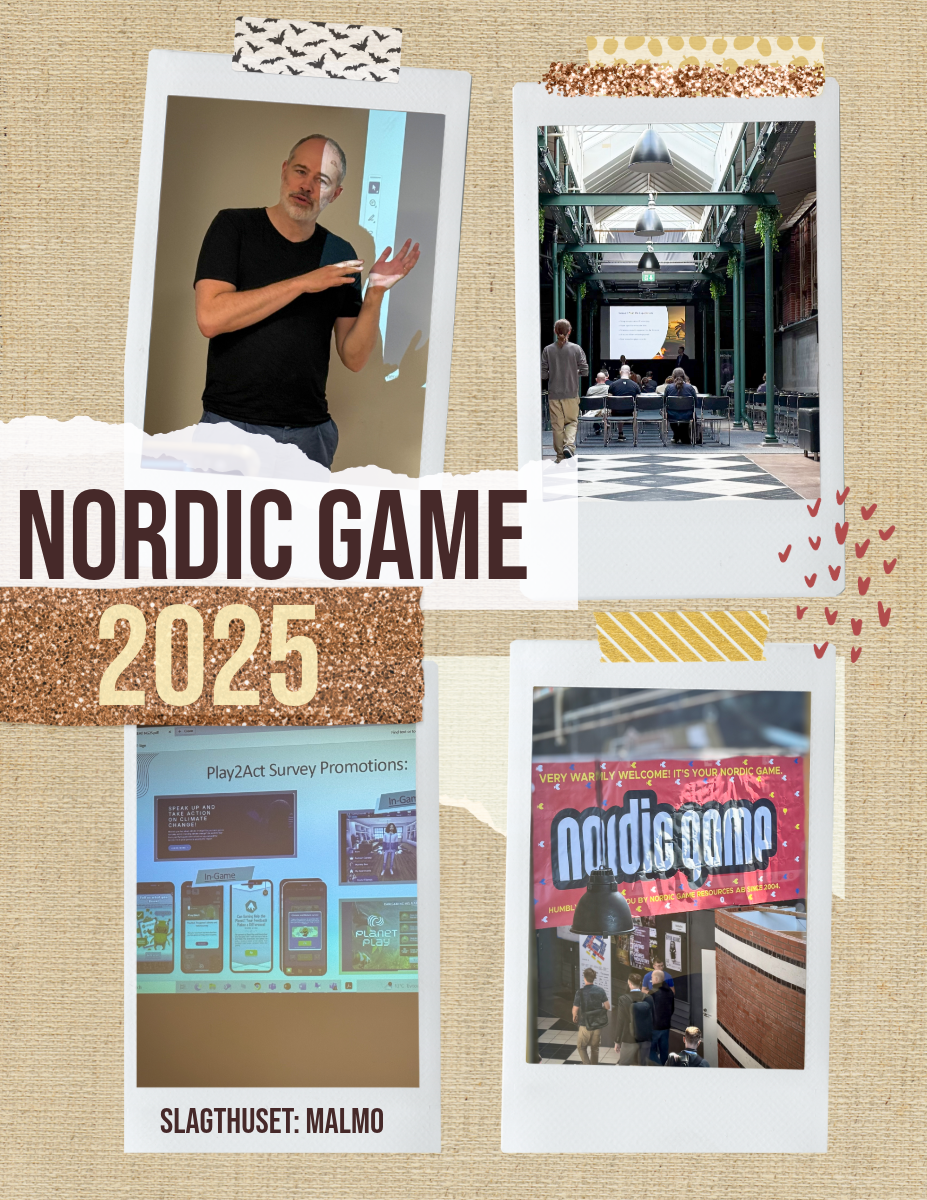
Eleven Ways Games Can Drive Green Change: Highlights from Nordic Game 2025
At the 2025 Nordic Game Conference, the GREAT project team presented a rapid but focused overview of eleven case studies demonstrating how digital games can foster civic engagement in climate-related decision-making.
These case studies, developed under the joint Horizon Europe and UKRI-funded GREAT project, explore innovative ways to use digital games as tools for public participation. The presentation highlighted how game-based interventions can bridge the gap between citizens and policymakers, offering new channels for expressing values, preferences, and concerns about climate and environmental issues.
The case studies covered a wide range of themes—from urban greening and green jobs to water conservation and climate policy—and used two main approaches:
- PlanetPlay: Embedding climate-focused surveys into popular digital games, enabling large-scale engagement with minimal friction. This approach was showcased in case studies like Play2Act, which reached over 934,000 players globally.
- Dilemma-based Learning (DiBL): Structured, dialogue-driven games that immerse players in complex policy dilemmas, fostering deeper reflection and value-driven discussions. Case studies included the Vienna Green Jobs game, the Cyprus Rooftop Revolution sessions, and Waterwise’s household water conservation challenges.
The GREAT team used a shared logic model to evaluate the effectiveness of these approaches, assessing not only scale and reach but also depth of engagement, learning outcomes, and potential social impact. Results showed that while large-scale survey-based approaches can gather broad data, deeper deliberative formats like DiBL promote more meaningful dialogue and policy insight.
The presentation emphasised that while games are not magic bullets, they can serve as powerful, scalable tools for engaging diverse communities in urgent climate conversations. By making participation more accessible and interactive, these methods have the potential to reshape how public engagement is conducted, especially in an era of increasing digital connectivity.
The session closed with a preview of the upcoming GREAT Toolkit, which will offer practical guidance, open-access tools, and case study insights to help others design and implement effective game-based civic interventions. This initiative aims to make the lessons learned through the GREAT project widely available, encouraging more organisations to explore how games can support democratic innovation.